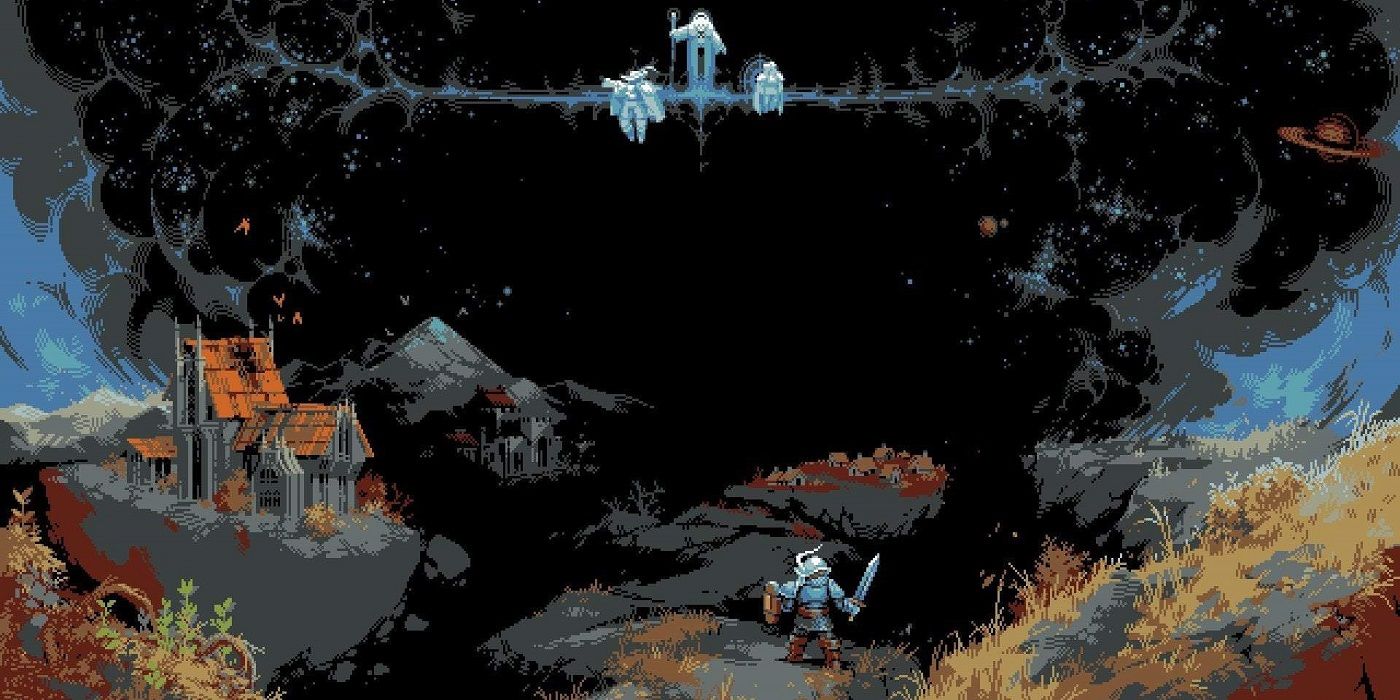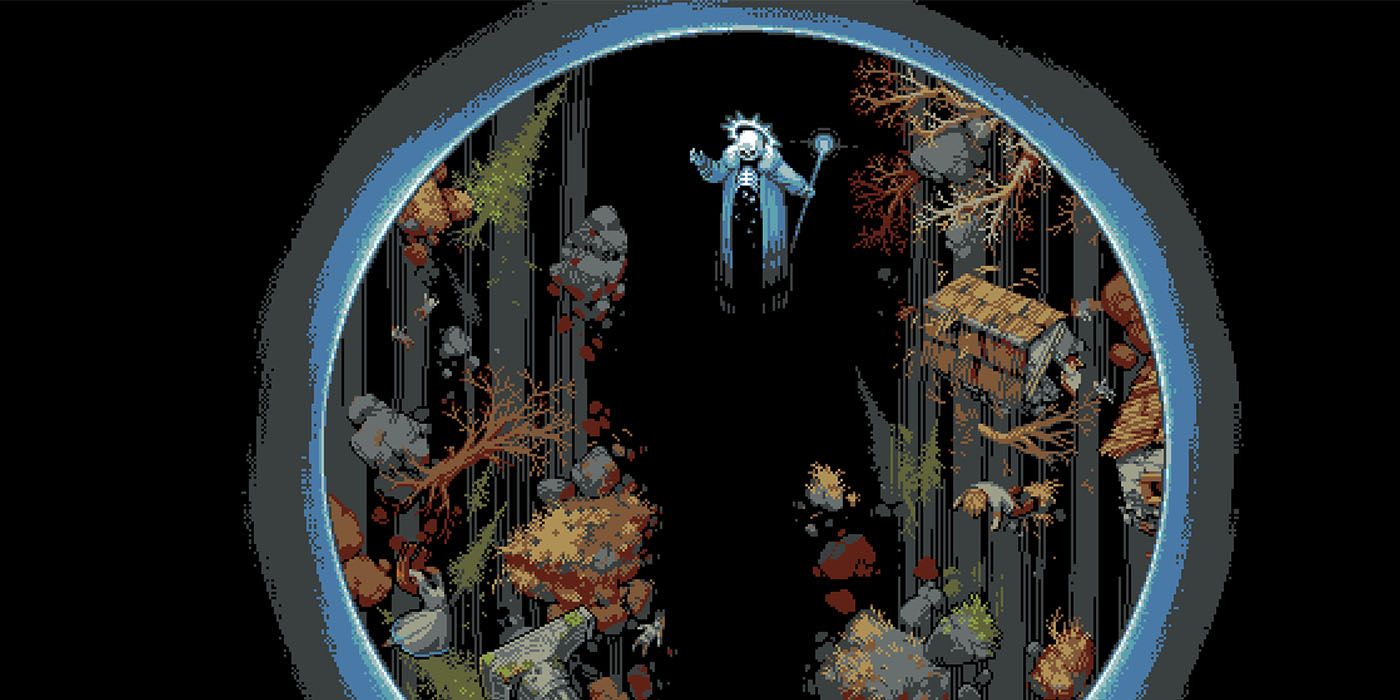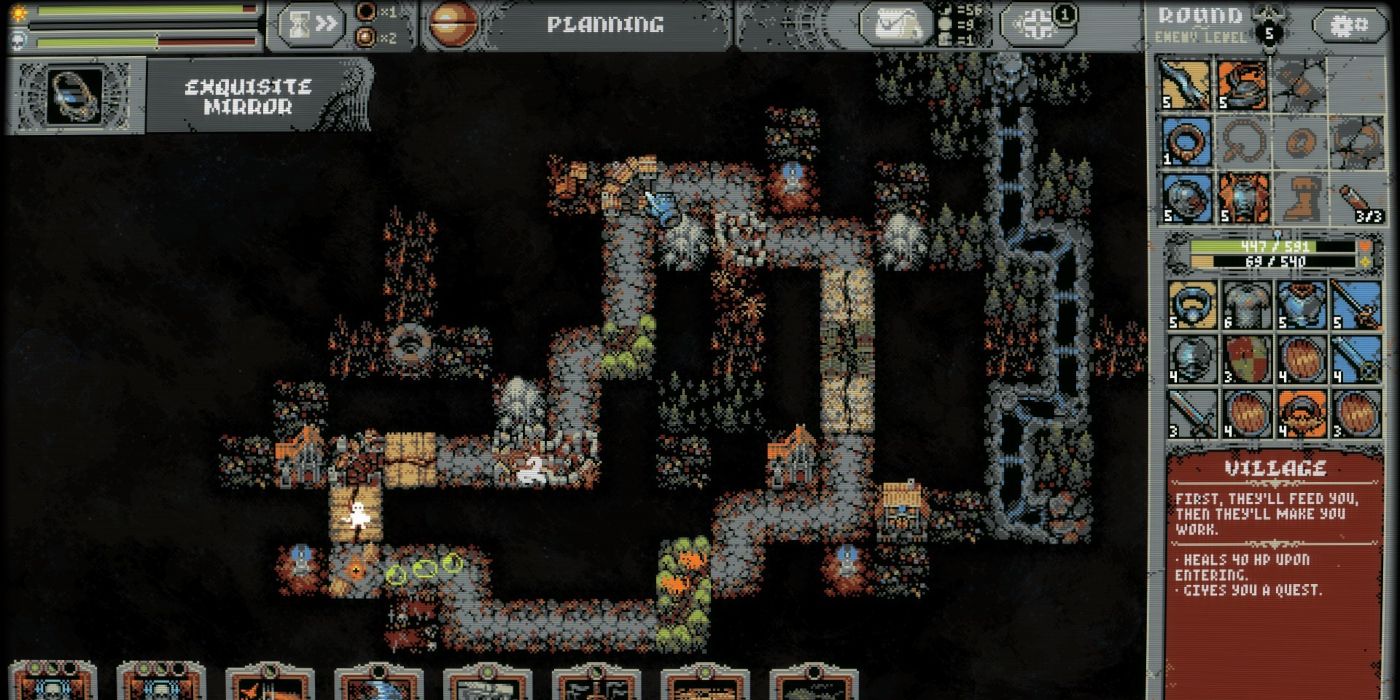At first, Loop Hero might just look like another deck-building game, sprinkled with dime-a-dozen terms that blend together when one unfocuses their eyes over the front page of Steam: "indie," "pixel," "rogue-like," "RPG." However, the game's popularity is well-earned, and it is the perfect example of why indie games are so important - sometimes they manage to innovate something truly unique and special using even the most basic components. Loop Hero blends together familiar mechanics and tropes into something that feels totally refreshing, and it's worth sinking some time into.
In Loop Hero, players occupy a role similar to the Dungeon Master in a TTRPG. True to the game's name, a small hero treks around a loop, which the player populates with tiles that spawn monsters, grant bonuses, or have more complex effects. For each enemy the hero defeats, loot in the form of items and new tiles to place spill out into the hero's inventory and player's hand of tile cards. The gameplay loop is simple: Manage the hero's equipped items to keep them alive, use held cards to increase the challenge, reap the rewards of beating tough enemies, and guide the hero back to the start of the circular path safely. Then, go home to camp and buy upgrades, or take the risk of going around the loop again.
The lighthearted tutorial is over in about a minute, but the game only gets more and more complex from there. What Loop Hero doesn't hold the player's hand on are the compound effects of various tiles, items, and enemies, all of which are learned through trial and error. Even more difficult is mastering the perfect balance of making a tough enough loop to earn good items and upgrade materials, while still making it forgiving enough that the auto-walking hero can get through that one last cycle without dying.
At its core, the gameplay elevates the joy and challenge of cleverly combining item effects to create a good build. Loop Hero is all about watching numbers go up and stacking modifiers, both on the route the hero is cycling through and in the hero's own equipment. Everything else that usually goes into an RPG - even combat - is stripped away and automated. It has a similar feeling to playing chess against oneself - setting up a tough challenge and then working hard to overcome it and gain the rewards. It wouldn't work so well if the game wasn't also constantly pushing up the difficulty and encouraging players to think constantly and carefully about what they place where and which items to equip.
That might sound boring to some, but the items and upgrades come so quickly and have so many different effects that managing the inventory and landscape is just as engaging, if not more, than active combat in other similar games. There is a certain purity to how simple it all is, but the gameplay is paced so that even just the core mechanics of inventory management and auto-scrolling are quick, challenging, and rewarding. Discovering the hidden effects of combining various tiles and items also adds to a sense of discovery and problem solving, even though the adventurer themself is simply walking in an increasingly deadly circle over and over again.
The main gameplay in "expedition" mode is broken up by occasional conversations with NPCs or trips home to camp to purchase upgrades and continue the main story. Conversations are lighthearted and funny, while the story itself is mysterious and genuinely intriguing, with dark overtones that touch on memory, oblivion, and re-building an imagined world from nothingness. None of it is overbearing, and it's usually a welcome break after an intense bout of nail-biting over whether the hero can make it back with all their loot or not.
There are three classes of hero to choose from, Warrior, Rogue, and Necromancer, all of whom require a different type of planning. There are countless types of tiles to unlock, and four chapters to the respectably-long (for a small rogue-like) campaign. The music is satisfyingly retro-funky, and the pixel-art is done right, with careful use of color and pleasingly nostalgic designs. On top of it all, there's a layer of polish, attention to quality-of-life, and intuitive design. Little details like the combat screen pausing when the player hovers over an enemy or inventory item, just in case they want to read a foe's stats or switch out a weapon on the fly, go a long way.
Downsides include the frustrations of randomized loot, an occasional grind to getting enough materials for the next camp upgrade, and the fact that by the time the fourth and final chapter rolls around there are few more secrets and combos to discover. Still, the game is a genuine gem, and for $15 at full price, it's worth getting hooked on.
Loop Hero is available on PC. Game Rant was provided a code for this review.



